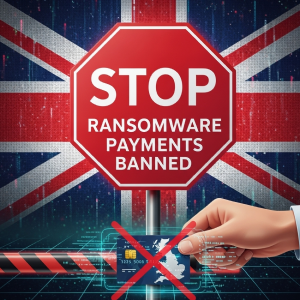UK prepares for Ransomware Payment Ban

The UK's groundbreaking ban on ransomware payments for government and critical infrastructure will take effect within months, while Australia and New Zealand will continue to rely on reporting requirements rather than payment prohibitions.
Australia requires only disclosure of payments within 72 hours for businesses with annual turnover exceeding $A3 million. New Zealand maintains an even softer approach, strongly discouraging payments but imposing no legal requirements.
The contrasting regulatory frameworks present complex compliance challenges for multinational organisations operating across these jurisdictions. Australian businesses with UK operations or supply chain relationships may find themselves subject to conflicting legal obligations when ransomware strikes.
"What's unfolding in the UK could well be a defining inflection point in Europe's broader response to ransomware," warns Fintan Quinn, senior director analyst at Gartner, who specialises in backup, disaster recovery and storage architecture solutions.
Quinn predicts the UK's bold stance will fundamentally alter the ransomware landscape: "If encryption doesn't work, they'll pivot. In fact, they already have towards data exfiltration, double extortion, and the threat of public leaks, often targeting the very data that underpins citizen trust and institutional credibility."
The regulatory divergence comes as industry research reveals contradictory attitudes towards payment restrictions. A Commvault survey of 1,000 UK business leaders from companies with revenue over £100 million found 75% would break a private sector payment ban to save their organisations, despite 96% supporting such measures in principle. The research was conducted between June 4-6, 2025, by Censuswide for Commvault.
The study exposed a sharp divide between principle and practice, with only 10% saying they would comply with a ban if their company's survival was at stake, while a further 15% remained uncertain about compliance during actual attacks.
However, separate research suggests market dynamics may be shifting independently of regulatory pressure. Databarracks' Data Health Check 2025 revealed dramatic changes in ransomware response strategies, with only 17% of UK businesses paying ransoms in 2025, down from 27% in 2024 and 44% in 2023.
The Databarracks study found organisations are now more than three times more likely to recover from backups than pay ransoms, with 57% successfully restoring operations from secure backup systems. Critical to this shift are improved backup practices, including 72% of organisations now maintaining air-gapped backups and 59% implementing immutable backup solutions.
"Recovery isn't a last resort - it's a strategy," said James Watts, Managing Director at Databarracks. "The organisations that plan and rehearse their recoveries are the ones that come through an attack strongest."
Australia's Cyber Security Act 2024, which took effect in May 2025, represents the first mandatory reporting framework globally but stops short of payment restrictions.
The Australian approach focuses on intelligence gathering rather than prevention, requiring businesses and critical infrastructure operators to report payments to the Australian Signals Directorate within 72 hours. Failure to comply attracts civil penalties up to 60 penalty units, currently $19,800.
New Zealand's stance remains policy-based rather than legally mandated. The government expects public sector agencies not to pay ransoms and warns that payments may breach sanctions regimes, particularly the Russia Sanctions Act 2022 or United Nations Act 1946, carrying potential criminal penalties up to seven years imprisonment and fines reaching $1 million for organisations.
Gartner's Quinn emphasises the UK's approach will create operational complexities for multinational organisations: "The regulatory landscape is set to fragment. Multinational organisations will face a complex web of obligations, with varying timelines for breach reporting and different liabilities depending on jurisdiction."
The challenge extends beyond simple compliance to fundamental business continuity planning. Quinn warns that regardless of payment ban coverage, organisations must rethink their entire approach: "Cyber resilience is not just a technical problem; it's a business survival issue. Organisations need clear governance structures that define how ransom decisions are made, who is informed, and how stakeholders are engaged."
The UK consultation, which closed in April 2025, highlighted significant support for extending restrictions to supply chains, with 62% of respondents believing CNI and public sector suppliers should be included in payment bans. This could create cascading compliance obligations for Australian and New Zealand companies supplying UK critical infrastructure. The government's consultation response was published on July 22, 2025.
Industry experts predict the UK's three-pronged approach - combining targeted payment bans, payment prevention regimes, and mandatory reporting - will influence global regulatory development. The measures include economy-wide payment prevention requiring government pre-approval for private sector ransoms and mandatory incident reporting within 72 hours.
"Forward-thinking leaders will seize this moment to engage closely with CISOs, clarify decision-making authority, and rigorously test incident response plans," Quinn advised, emphasising the need for collaboration between CISOs, CTOs, and CIOs to drive shared responsibility across organisations.
The UK government has indicated detailed guidance will accompany the legislation, with civil penalties preferred over criminal sanctions for most non-compliance scenarios. Implementation timing remains under consideration, but industry sources expect the measures to take effect before the end of 2025.
